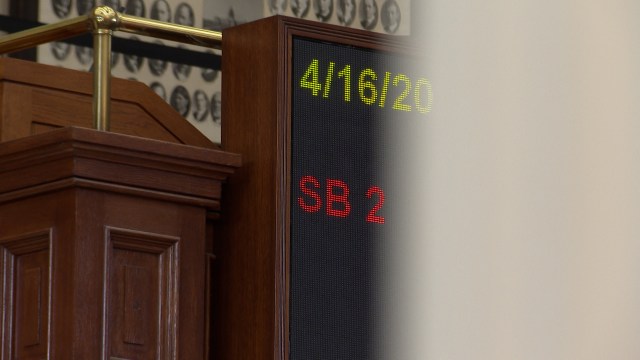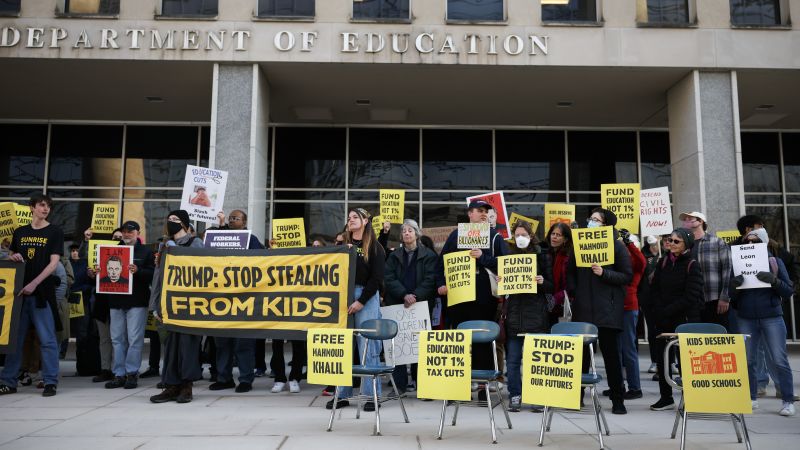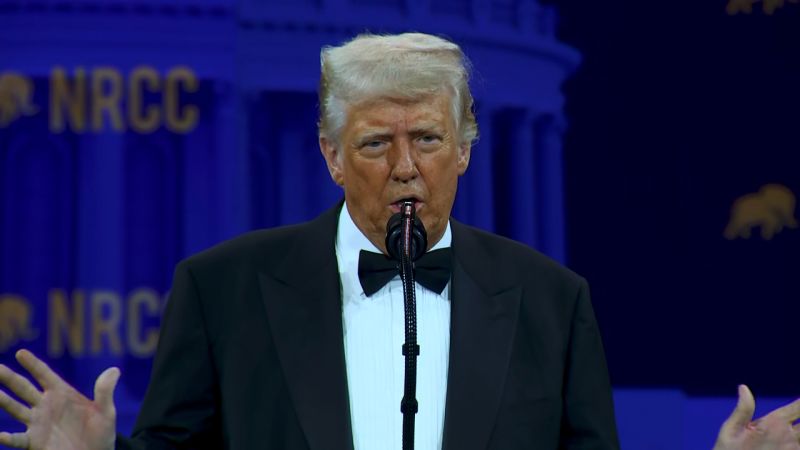"Worse Than Nazi-Era Laws": Judge Slams Trump's Controversial Alien Enemies Act Tactics
Politics
2025-03-25 00:20:12Content

In a heated legal battle, the Justice Department is fighting to reinstate President Trump's controversial deportation strategy targeting alleged members of a Venezuelan gang. During an intense appellate court hearing, the case took a dramatic turn when Judge Patricia Millett delivered a scathing critique of the administration's approach to deportation.
The nearly hour-long proceedings before the US DC Circuit Court of Appeals highlighted the contentious nature of the government's use of wartime deportation authorities. In a particularly striking moment, Judge Millett delivered a blistering rebuke, asserting that even "Nazis got better treatment" than the current deportation policy suggests.
The federal government is now pressing to lift a temporary judicial block that has prevented the implementation of the sweeping deportation measures. At the heart of the dispute is the Alien Enemies Act, a controversial legal mechanism that the Trump administration has sought to leverage in its aggressive immigration enforcement strategy.
The case represents a critical intersection of legal, humanitarian, and national security concerns, with potentially far-reaching implications for immigration policy and executive power.
Legal Showdown: Trump's Deportation Strategy Faces Judicial Scrutiny
In the complex landscape of immigration law and executive authority, the United States finds itself at a critical juncture where presidential power and judicial oversight intersect, challenging long-established norms of legal interpretation and humanitarian considerations.Navigating the Turbulent Waters of Immigration Enforcement
The Constitutional Battleground of Deportation Powers
The recent legal confrontation between the Justice Department and the federal appeals court reveals a profound tension in the interpretation of wartime immigration statutes. At the heart of this dispute lies the Alien Enemies Act, a controversial legal mechanism that grants extraordinary powers to the executive branch during periods of national security concerns. During the intense hearing before the US DC Circuit Court of Appeals, the judicial system demonstrated its commitment to rigorous constitutional scrutiny. Judge Patricia Millett's pointed critique highlighted the potential overreach of deportation strategies, drawing a provocative parallel that suggested even historical adversaries received more equitable treatment.Examining the Broader Implications of Deportation Policies
The case involving the Venezuelan gang members represents more than a simple legal dispute; it embodies the ongoing struggle between national security imperatives and fundamental human rights principles. The Justice Department's aggressive pursuit of expedited deportation raises critical questions about the balance between protecting national interests and maintaining humanitarian standards. Legal experts have been closely analyzing the potential precedential impact of this case. The use of wartime authorities in contemporary immigration enforcement suggests a complex interpretation of executive powers that extends far beyond traditional understanding of national security protocols.Judicial Perspectives and Constitutional Boundaries
The appellate court's deliberations underscore the critical role of the judicial branch in maintaining checks and balances within the governmental system. By challenging the broad application of deportation authorities, the court signals its commitment to preventing potential abuses of executive power. The hearing exposed intricate legal arguments surrounding the scope and limitations of presidential authority in immigration enforcement. Each side presented nuanced perspectives that delve into constitutional interpretation, highlighting the sophisticated legal landscape surrounding such high-stakes judicial reviews.Broader Context of Immigration Enforcement Strategies
This legal confrontation represents a microcosm of the larger national debate surrounding immigration policy. The case illuminates the ongoing tension between national security concerns and fundamental principles of due process and humanitarian treatment. The Justice Department's approach reflects a broader strategy of leveraging historical legal frameworks to address contemporary immigration challenges. However, the judicial pushback suggests a growing reluctance to accept expansive interpretations of executive authority without rigorous constitutional scrutiny.Potential Ramifications and Future Legal Landscape
The outcome of this legal battle could potentially reshape future immigration enforcement strategies. By challenging the application of the Alien Enemies Act, the court may establish critical precedents that define the boundaries of presidential power in deportation proceedings. Legal scholars and policy experts are closely monitoring the developments, recognizing that this case could have far-reaching implications for how immigration laws are interpreted and implemented in the United States. The intricate legal arguments presented during the hearing demonstrate the complexity of balancing national security imperatives with fundamental human rights protections. As the judicial process unfolds, the nation watches with keen interest, awaiting a resolution that could significantly impact immigration enforcement methodologies.RELATED NEWS
Politics

GOP Insider Reveals: The Chilling Fallout of a Controversial School Choice Vote
2025-04-17 18:06:24
Politics

Breaking: Trump Poised to Launch Radical Overhaul of Education Department
2025-03-20 00:03:01






